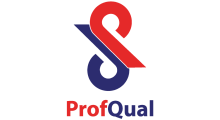In an increasingly interconnected global economy, the efficiency of supply chains plays a pivotal role in an organization's ability to compete and succeed. The Post Graduate Diploma in Supply Chain and Logistics Management is a comprehensive program designed to equip professionals with the strategic, analytical, and operational skills needed to manage and optimize supply chain processes from end to end.
This program offers an in-depth exploration of key domains including procurement, inventory control, demand forecasting, warehouse operations, global logistics, supplier performance, and risk management. Learners will engage with real-world case studies, simulation exercises, and industry-aligned tools such as ERP systems and procurement-to-pay frameworks.
Whether you are an aspiring supply chain professional or a seasoned practitioner seeking advanced insights, this course will empower you with the competencies to design agile, efficient, and cost-effective supply chain systems that drive business growth and customer satisfaction.










